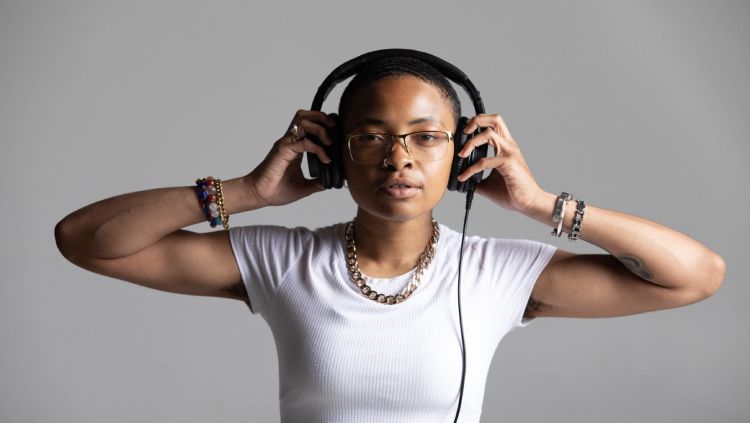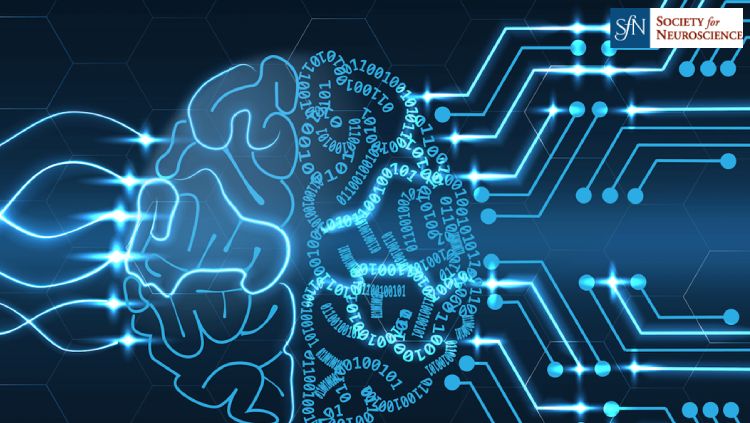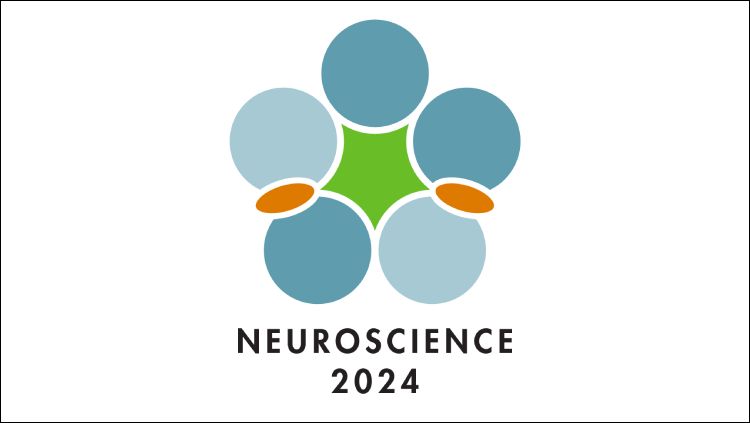Future of Neuroscience: Amanda Watts
“Future of Neuroscience” is a series of interviews with rising members of the field. A forward-looking complement to SfN’s “History of Neuroscience” autobiographies of distinguished researchers, interviewees reflect on their emerging careers and share thoughts on where they believe neuroscience is headed.

Amanda Watts (he/they) is an artist, activist, and neuroscientist from Atlanta, Georgia who merges two passions — music and medicine — into their research to advance community healing and wellness. Amanda earned a Bachelor of Arts in Neuroscience from Duke University and currently serves as lab manager and research assistant in the lab of AZA Stephen Allsop, MD, PhD at Yale and Howard Universities. They study the healing properties of music, meditation, community, and psychedelics, particularly in folks of African descent. Amanda produces, engineers, performs, and writes music and poetry under the moniker Gourmet Dash. They have been playing percussion and piano for eight years and engage with their Kongo roots through percussive instruments. He produces sonic collages mainly through sampling genres that laid his musical foundation, including gospel, hip hop, jazz, soul, and classical. Amanda aspires to pursue a MD/PhD to further his work in implementing innovative and multi-modal music-based therapeutics. Adjacent to academia and music, he advocates for housing justice as a leader in the Connecticut Tenant Union.
Neuroscience Quarterly (NQ): How did you first become interested in neuroscience and what made you want to make it into a career?
Amanda Watts (AW): I grew up in a predominantly Black part of Atlanta. I noticed a lot of people in my community struggling with mental health challenges. It made me ask, “What’s wrong with us?” I understand now that's a faulty question. There was nothing wrong with us. Our behaviors were reactions to our circumstances. I had always wanted to be a doctor, but with this new realization, I became interested in studying behavior.
At the same time, I had always been interested in music. I started playing the piano when I was four and played in different jazz ensembles, marching band, and symphonic orchestras. I realized that by studying the neuroscience of music and its effects on people, I could tie together two of my passions. I started interning at a hip hop studio under Patrick Douthit aka 9th Wonder, a professor of hip hop history and production at Duke, while working in a neuroimaging lab studying post-traumatic stress disorder and traumatic brain injury.
NQ: What is your area of research and what drew you to it?
AW : I study music cognition because I see music as an incredible tool for healing. I was taught from a young age I had to choose between music and academics. But I came across the work of Psyche Loui, Benjamin Gold, and AZA Allsop, my current PI who I met through Black in Neuro. We study the healing properties of music, meditation, community, and psychedelics with a particular interest in people of African descent. The project we presented at Neuroscience 2023 used a social music neuroscience paradigm to explore the role that harmonic structure has on feelings of subjective connectedness and the underlying neural mechanisms of connection. In a different study, we’re investigating the effectiveness of drum circle participation on decreasing anxiety and increasing feelings of connectedness.
NQ: How has music impacted you personally, and how have those experiences informed your research? Conversely, how does your neuroscience impact your art?
One of the first questions I had was, “Why do I get chills when I listen to some of my favorite songs or songs that I don't even know?”
AW: When I first started pursuing research into the neuroscience of music, I had a lot of doubts. I wondered how I would even go about doing this and where to start. One of the first questions I had was, “Why do I get chills when I listen to some of my favorite songs or songs that I don't even know?” I noticed that music evoked a physical response in me. That question affirmed to me that I have the curiosity, the observation skills, and the knowledge to build a hypothesis and design a music neuroscience experiment. To me, these are spiritual phenomena, but there is a scientific explanation too. These “chills” can be interpreted as the presence of God and/or a visceral response to sound. There is a place for both.
I bring the same creativity that goes into my music to my science. When we're brainstorming about study design, we throw everything at the wall and we see what sticks, and then we pare down from there. When I’m producing or songwriting, I might add more sounds or words than what I would end up with and then step back and tailor it. I approach my music in a technical and attentive way, conscientious of how all sonic details – large and small – can be used to convey certain emotions. I'm surgical with how I chop samples and engineer and mix my music. I apply this same conscientiousness to neuroimaging techniques and the whole process of science, even the regulatory side of things.
NQ: Can you talk about some difficulties you faced pursuing your education and your career and how you navigated that?
AW: While I was an undergraduate, I became overwhelmed with the rigor of Duke and the polarization of the country. The Black Lives Matter movement was at its peak, and it was hard to go from that context of growing up in a predominantly Black space to a multiracial space while contending with different events on campus and around the country. My mom got sick my freshman year, so the emotions around that compounded everything else.
I paused music because I thought I needed to focus on my studies, but that just led me to burn out. I got academically dismissed in my sophomore spring semester, and I had to sit out two semesters. I was blindsided because I had achieved such a high level of success in high school and all throughout grade school.
The biggest thing that I learned from fighting to get back into school was that it’s totally acceptable and sometimes necessary to ask for help. I felt like I had to be perfect. This idea that we have to achieve at a high level at all times diminishes our humanity in a way. Now, I’m better at asking for help, and I feel like I have a clearer, fuller picture of how everything that I'm doing contributes to my life and my community.
NQ: What are some of your goals and aspirations related to your neuroscience career?
AW: I want to work to innovate different music-based and other multimodal therapeutics using astrology, which I'm studying as well, yoga practices and other body practices. We tend to put the brain on a pedestal and miss the body component. The book The Body Keeps the Score was a huge breakthrough to me because of the emphasis it put on treating the whole person: the body, mind, and spirit. I hope to create therapeutics that meet people where they are, and to get there, I'll be pursuing an MD/PhD in the next couple of years. I wrote this rap that actually fits in well with this question. It’s called “THINK BIG”:
I see myself on festival stages, working with the greatest,
Reaching folks where they at in their deepest places,
Facilitating healing, searching for a feeling,
This opportunity to expand I sure ain't spilling.
I got places to make up, grace to take up.
The time is now, ain't going for the makeup,
Got to shape up and ain't talking about Sketchers,
Got my catcher’s glove on to receive these blessings.
Listen to the full rap on YouTube.



















